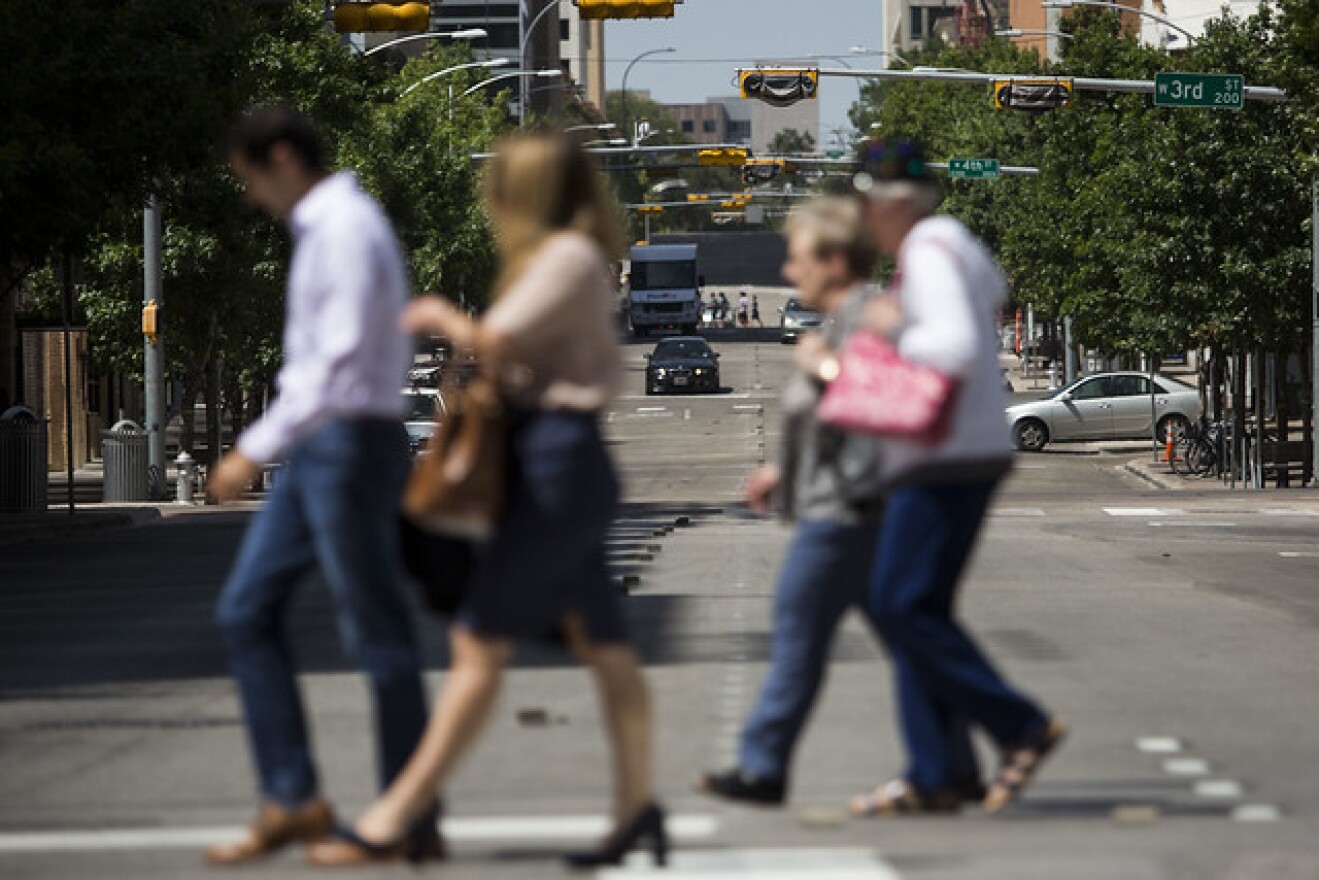Every year, more people move to Texas from other states than leave. They come for jobs, higher education and a relatively lower cost of living, among other things. But the net population growth from those new arrivals has been shrinking, and researchers are trying to figure out why.
A from the Dallas Federal Reserve highlights the trend, showing how net domestic migration to the state began falling starting in 2015.
The reason, according to the report, is that low unemployment in other states means fewer people need to come to Texas for work.
But, other reasons may be at play as well. The report looks at “net” population growth, i.e., the number of arrivals versus the number of departures. It makes the assumption that the decline in growth is due to fewer people arriving.
Since 1991, more people have moved to Texas than left, but there's been a lot of variation in how many. Around 2005, domestic migration to the state exploded. It stayed strong through the Great Recession as people arrived, attracted by Texas’ relatively low unemployment rate. But that slowed as employment rates rose nationally.
“It’s costly to move, and so people tend to resist that unless they need to,” says Keith Phillips, an assistant vice president and senior economist at the Federal Reserve Bank of Dallas who co-authored the report.
One potential complication with that finding is that more people also appear to be leaving the state, at least during some of the years sampled.
A snapshot of from the American Communities Survey shows departures from Texas between 2011 and 2017 have generally increased. That could mean net population is down not only because fewer people are coming, but also because more Texans are seeking to live elsewhere.
As far as that drop in arrivals goes, factors beyond low unemployment in other states may also play a roll.
Lloyd Potter, the state demographer of Texas, says migration follows a predictable pattern and tapers off after several years, as people willing to move away from home move and those who remain remain.
“These people have strong attachment to where they are,” he says. “They weathered [the recession] and they’re still there, and now things are, relatively speaking, pretty good.”
Phillips says the rising cost of living in Texas cities may not only encourage some to move away, but also dissuade others from moving here.
“It’s still much cheaper than, say, many areas in California where people tend to move from,” he says. “But going forward we’re going to have to try to limit the amount of increase in cost of living here if we’re going to continue to see this strong net in migration.”
Regardless of the reasons, fewer out-of-staters arriving means several things for Texas.
Phillips says fewer domestic migrants will make recruiting new employees more difficult for Texas businesses because the pool of jobseekers is shrinking.
“While we still find a net migration positive, many employers may notice it’s harder to attract people from out of state," he said.
Potter says the decrease may also impact Texas' average education levels.
“Domestic migrants have much higher levels of educational attainment,” he says. “So if that slows down than conceivably the improvements that we’ve seen in educational attainment in the state could potentially slow down as well.”
He says that could ultimately hurt the state’s economy.
Copyright 2020 KUT 90.5. To see more, visit . 9(MDAxODQzOTgwMDEyMTcyNjI4MTAxYWQyMw004))





